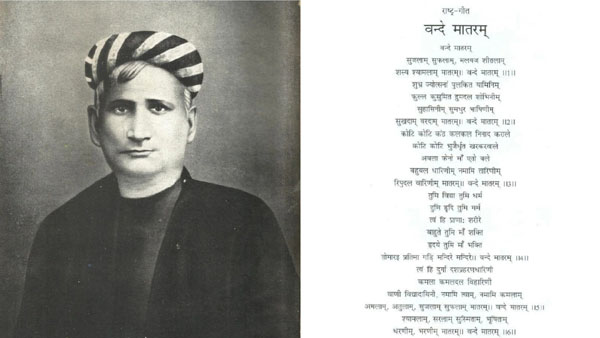By Satyabrat Borah
Imagine waking up to a phone call that changes your life forever. A stern voice on the other end claims to be from the police. They say you are under digital arrest. Your bank accounts are frozen. Your name is linked to money laundering. The only way out is to transfer everything you own to a “safe” account right now. You panic. Your heart races. You send the money. Only later do you realise you have been robbed by someone sitting thousands of miles away, someone who never even left their chair. This is happening to lakhs of Indians every single day. The Supreme Court of India recently called it a proliferating menace, and they are right. Digital scams have grown so huge that they are no longer just crimes. They are big businesses, run like factories, and the factories are hidden in the jungles of Southeast Asia.
Most of us think cybercrime means a hacker in a dark room stealing passwords. That was the old story. Today’s scams are different. They are planned like movies, scripted word by word, and performed by thousands of people working in shifts. The frightening part is that many of these workers are not willing. They are prisoners. They are slaves of the twenty-first century.
It starts with a simple job ad. A young man in Uttar Pradesh or a woman in Kerala sees a post on social media. “Work in Thailand. Good salary. Free food and stay. No experience needed.” The pay sounds too good to be true. They apply. Someone replies quickly, always helpful, always friendly. Soon they have a ticket to Bangkok. Thailand allows Indians to visit without a visa for a few weeks, so no one suspects anything. Once they land, a car picks them up. The driver smiles. Everything feels normal. Then the car crosses into Myanmar. Phones are taken away. Passports disappear. The smiles vanish. Guns appear.
These new recruits are now property. They are taken to places the world has forgotten, areas near the Chinese border where the Myanmar army and local militias rule. Huge compounds rise behind tall walls topped with barbed wire. Inside, there are no windows, only rows and rows of computers. Guards with sticks walk between the desks. The new workers are told the truth. They owe fifty lakh rupees for being brought here. They will pay it back by scamming others. If they refuse, they are beaten. Some are locked in rooms without food. Women face worse threats. Everyone learns fast. Survival means making strangers fall in love or trust you enough to send money.
Each compound is a scam university. Seniors teach newcomers how to speak like a policeman, how to cry like a heartbroken lover, how to sound like a rich investor. They use fake photos stolen from Instagram. They create whole lives that do not exist. One favourite trick is called pig butchering. It is slow and cruel. First, the scammer becomes your friend on WhatsApp or Telegram. Maybe they message you by mistake. Sorry, wrong number. But they keep talking. Days become weeks. They share pictures of their dog, their morning coffee, their luxury car. You start to like them. Then they tell you about a secret way to make money with cryptocurrency. Only special people know this. You are special. You send a little money. It grows. You send more. By the time you realise the app is fake, your savings are gone and your friend has vanished.
These compounds make more money than many honest companies. One centre in northern Myanmar was earning two crore rupees every single day before it was raided. The bosses live like kings. They drive expensive cars and throw parties while the workers sleep on the floor. The local militias take a big share. They call it tax. The Myanmar army looks the other way because the money buys guns and bullets for their war. Everyone wins except the slaves and the victims.
India has become the favourite hunting ground. Why? Because we trust easily. We respect uniforms. We panic when someone calls the police. We dream of quick money. Scammers know this. They speak Hindi, Tamil, Bengali. They know which god you pray to. They send fake arrest warrants with real-looking government seals. Last year Indians lost more than thirty thousand crore rupees to such scams. That is enough to build a hundred new hospitals or a thousand new schools. Instead, the money buys yachts for criminals hiding across the border.
The worst part is that many of the people making those calls are Indian too. Bright boys who wanted to earn a little extra. Girls who dreamed of seeing the world. They thought they were going for data entry jobs. Now they wake up every morning knowing they are destroying families back home. Some try to escape. Most are caught. The lucky ones are only beaten. The unlucky ones disappear forever.
The world is slowly waking up. Indian police have started working with Thailand and Cambodia. Sometimes they manage to rescue a few dozen people. But for every compound they close, ten more open. The jungles are big. The war in Myanmar makes everything confused. No one knows who really controls the land. Criminals love confusion.
So what can we do? The Supreme Court has asked the government to treat this like a national emergency. They want a special law, a separate police unit, maybe even talks with other countries. But laws alone will not stop a mother from sending her pension to save her son from digital arrest. We need simple things too. Every school should teach children how to spot a scam. Every bank should call you before letting lakhs leave your account. Every phone company should block numbers that keep changing. And most importantly, we must learn to pause. When someone scares you into sending money right now, that is the moment to stop. Call your child. Call a friend. Call the real police. Just wait five minutes. Scams die when we stop rushing.
A rescued boy shared his story just last month. He slipped out at midnight with two friends and swam across the dark river as guards fired shots into the air to terrify anyone who dared follow. He made it to Thailand soaked to the bone, carrying nothing but dripping clothes. From a Red Cross camp he finally rang his mother; she wept for a full hour on the phone. Then he said something that still echoes: “Uncle, out of fear of beatings I forced elderly people to sell their wedding jewellery. Their faces haunt every dream. Part of me wants to die, but a bigger part wants to stay alive long enough to beg for their forgiveness.”
That boy is twenty-two years old. He should be in college, playing cricket, falling in love. Instead he knows how to break a grandmother’s heart in seven different languages. This is not just a crime story. This is a human story. Real people are being bought and sold so that other real people can be robbed without leaving their chairs.
We can shout about borders and laws and international cooperation. All that matters. But the fight starts at home. The next time your phone rings and a voice says you are in trouble, remember that boy swimming for his life. Remember the grandmother who will never see her jewellery again. Take a deep breath. Put the phone down. Talk to someone real.
Because the scammers are counting on your fear. And the only way to beat them is to stop being afraid alone.




